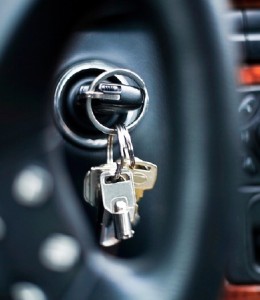Hanging up the Keys
 If you have been diagnosed with Alzheimer’s disease, one of the many difficult decisions you will face is when to hang up your car keys. Driving is such a routine freedom and pleasure that for most people it is quite painful to think about losing that independence. But the disease impacts the concentration and quick reactions that safe driving requires, so needing to stop is inevitable. The question of driving – whether to continue and if so, for how long – needs to be evaluated as part of your ongoing health planning.
If you have been diagnosed with Alzheimer’s disease, one of the many difficult decisions you will face is when to hang up your car keys. Driving is such a routine freedom and pleasure that for most people it is quite painful to think about losing that independence. But the disease impacts the concentration and quick reactions that safe driving requires, so needing to stop is inevitable. The question of driving – whether to continue and if so, for how long – needs to be evaluated as part of your ongoing health planning.
You’re likely to have conflicted thoughts about giving up driving, so acknowledge and share your feelings about it. Talk with your caregiver about how the driving decision should be made, balancing your desire for continued independence with the need for everyone’s safety. In the early stages of the disease, you may be able to simply transition your driving to be more limited, perhaps only driving familiar, short drives during the daytime. You could use a GPS tracking device to reduce a caregiver’s concerns.
Complete a driving contract, which can provide the names of the individuals you trust to help make the decision. You can ask that a physician or other 3rd party be involved, or even that an independent driving assessment be done. Discuss your views of what should define “unsafe driving“and the decision to stop. Ask that your caregiving team look for signs of issues over a period of time (versus one isolated incident). Measures such as frequency, patterns and severity of driving issues can quickly highlight safety concerns. Hitting the curb is one thing. Mistaking the gas pedal for the brake is another. If you do continue to drive, your caregiving team needs to monitor and evaluate your driving, and may determine you should stop even if you do not necessarily agree.
Caregivers need to keep the discussion about driving in the fore-front. Talk openly about your concerns, what observations you have noted from your loved one’s driving, and set the stage for the eventual decision to stop. Even with a driving contract this may not be easy. Appeal to your loved one’s sense of responsibility for the safety of others, reduce their driving needs and offer plenty of alternatives for them to maintain some independence as well as social outlets. Alternatives can include using delivery services or hiring a driver for prescriptions, groceries and other items. Establishing a circle of driving friends, neighbors and relatives is helpful in making the transition. Have friends visit your loved one at their home, or proactively arrange trips to social events to allow your loved one to retain their social connections. There are also many senior and disabled transportation alternatives available in the community, such as Outreach. Check out the ALZConnected online forum for help or referrals.
If your loved one pushes back on the driving decision, enlist the aid of a physician to write a prescription indicating, “No driving allowed.” If all else fails, you may need to take away the keys, or even disable or sell the vehicle. Don’t forget that it isn’t your loved one trying to be difficult. It is the disease impairing their insight and judgment relating to their driving abilities.
For more resources regarding the issue of driving make sure to visit the Alzheimer’s Association Dementia and Driving Resources Center.
I’ve also included this link to a great article written by retired lawyer and early stage Alzheimer’s patient, Chuck Warner. He gives some great insight on this sensitive topic. Read Chuck’s article here.
Blog written by Alzheimer’s Association Volunteer Diane Blum


















Those are very good suggestions. Some seniors might feel restricted at first, but if they realize the other options they have, they would surely be able to get used to it. The importance of unending support by family and caregivers and utilizing other Alzheimer resources as additional support could not be reiterated more.